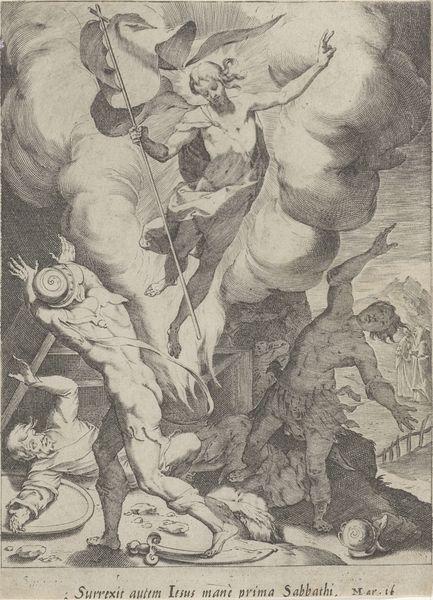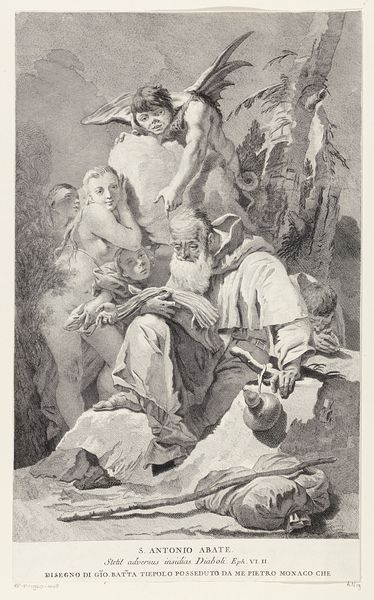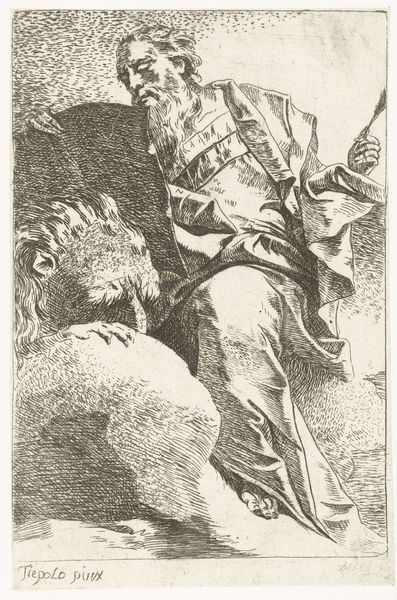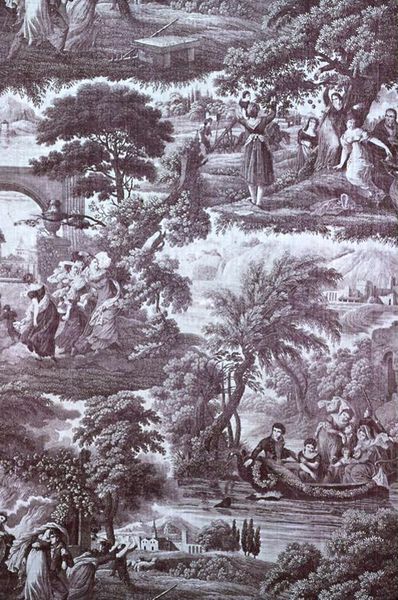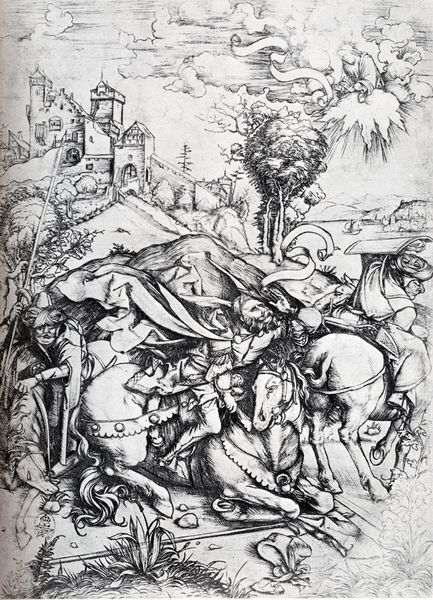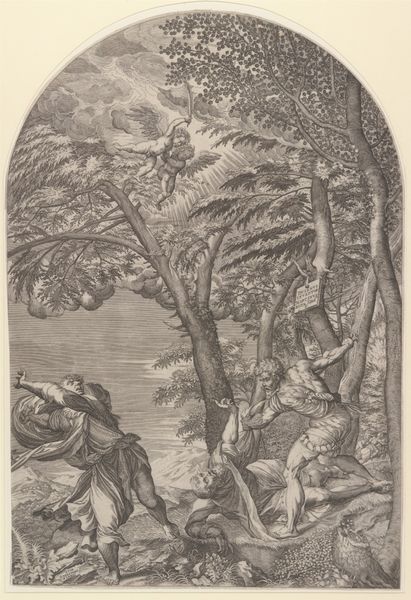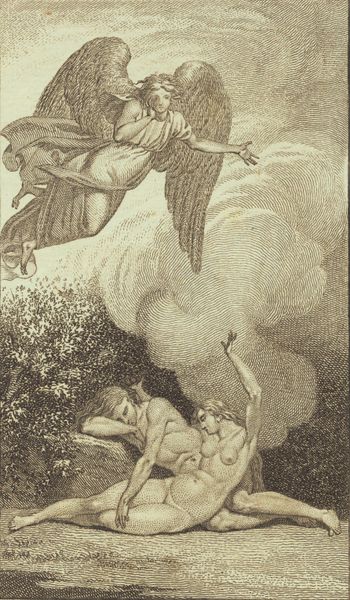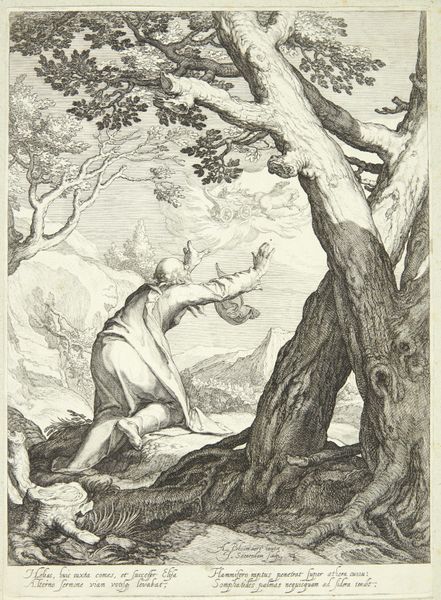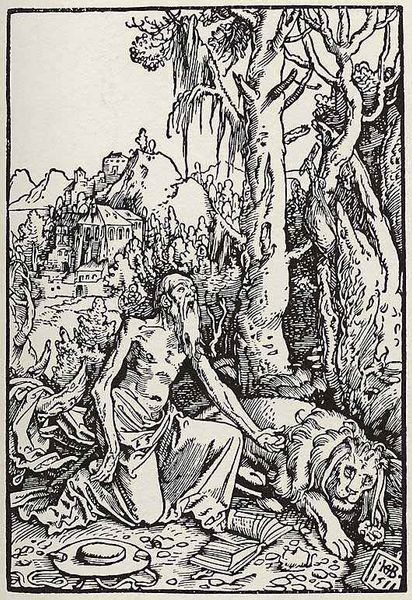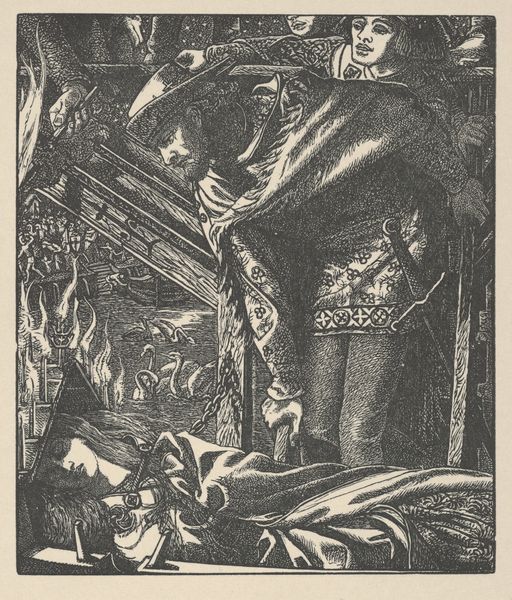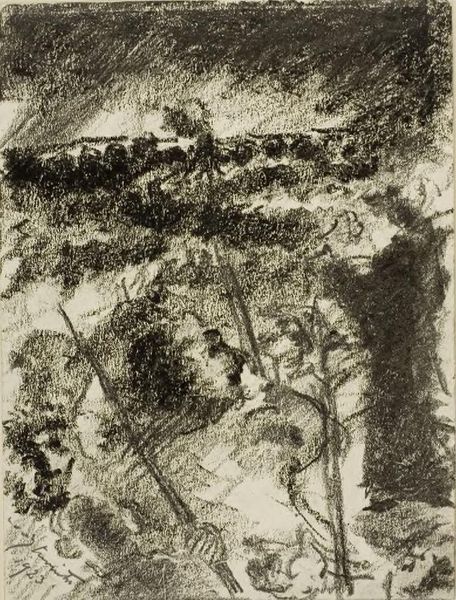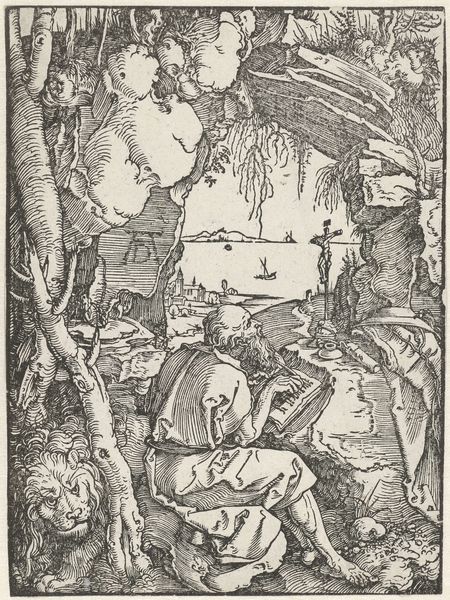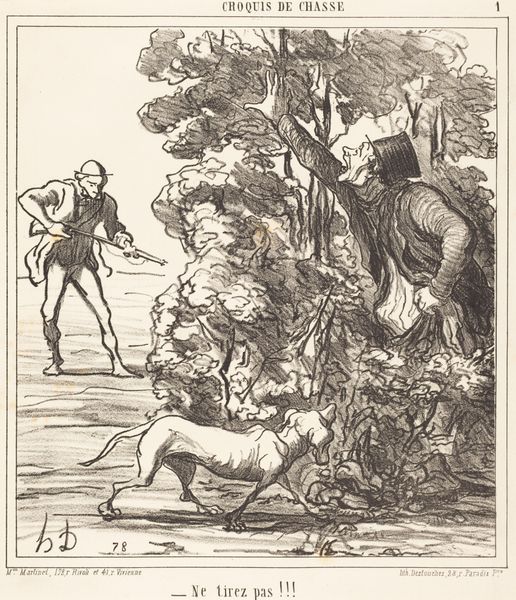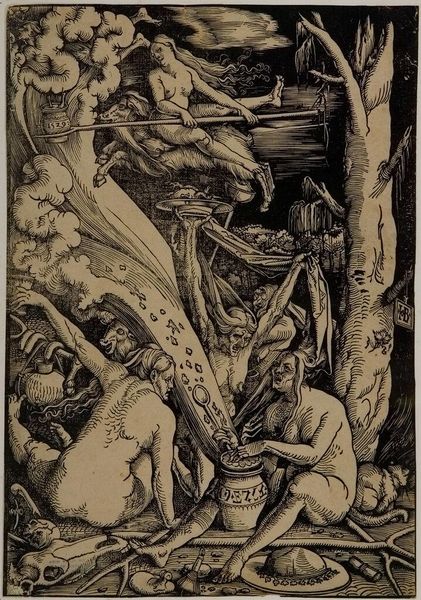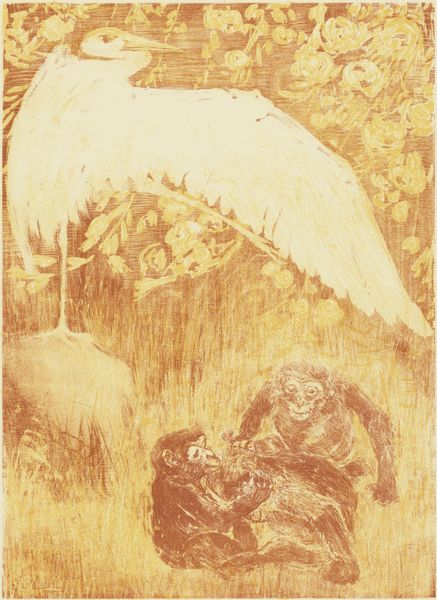
#
portrait
#
medieval
#
allegory
#
oil painting
#
soldier
#
naive art
#
christianity
#
mythology
#
genre-painting
#
history-painting
#
northern-renaissance
#
portrait art
Dimensions: 55.3 x 35.2 cm
Copyright: Public domain
Editor: This is Albrecht Altdorfer's "Beheading of St. Catherine," painted around 1506. It's currently housed in the Kunsthistorisches Museum in Vienna. I'm struck by the theatrical nature of it, and the almost fantastical setting. What’s your read on this piece? Curator: It’s fascinating, isn’t it? Beyond the dramatic depiction, consider the role of women, particularly within religious contexts of the time. Catherine was a powerful, intellectual figure who challenged the Emperor, representing a threat to established patriarchal structures. Editor: So you see this painting as more than just a historical depiction; it's a commentary on power dynamics? Curator: Absolutely. The very act of portraying a woman being silenced, literally beheaded for her beliefs, speaks volumes about the anxieties surrounding female agency. Notice also the landscape, overwhelming and somewhat obscuring the central action. Do you think that contributes to a message? Editor: It definitely makes the execution feel almost… incidental, like part of the natural order. It’s unnerving. The landscape overwhelms the figures! Are you suggesting that it serves to normalize such acts of violence against women? Curator: Precisely. By embedding the scene within a grand, indifferent landscape, Altdorfer may be subtly critiquing the societal structures that permitted such acts. Perhaps the setting emphasizes how personal the act of protest is compared to long standing forces. Editor: That's a really powerful way to look at it. I had initially seen it as just a dramatic retelling of a religious story, but now I understand it as a critique of the systems that oppressed women like St. Catherine. Curator: Exactly. Art can reveal power struggles that history often obscures, and force us to confront these inequalities and their historical precedents. Editor: Thank you for opening my eyes. This has really deepened my appreciation for how much art from the past has to say about today’s issues.
Comments
No comments
Be the first to comment and join the conversation on the ultimate creative platform.
